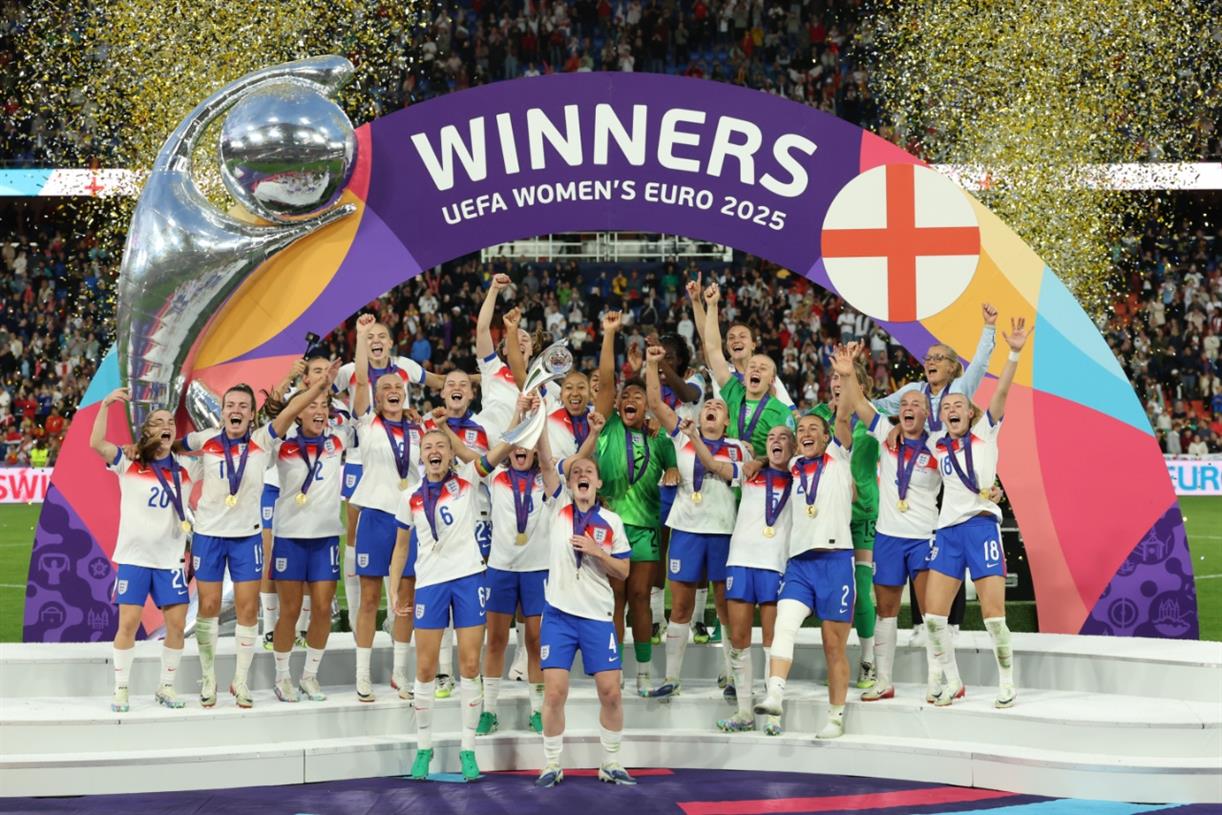There are lies, damn lies, statistics… And a universe of part-truths injected into our brains by smart marketers. Here: some of the ones we know about.
Here’s a new rule-of-thumb to arm you in your future adventures through the misinformation utopia of 2025: any fact that includes the number 10,000 is probably made-up.
A couple of years ago, we spent weeks debunking one particular nonsense nugget in this category: the idea that we each see, on average, 10,000 ads a day. It’s a compelling stat for a slide deck, a nice round number, and, according to all the researchers involved in all the research conducted into the matter, it’s complete rubbish.
This week, a similar story appeared about step counts: while many of us labor under the yoke of a smartphone pedometer’s golden target of 10,000 steps a day, a major study published by the Lancet found that the number was also made-up. Lead author Dr Melody Ding said that the target is “not evidence-based”.
Instead, it turns out, the 10,000 figure traces back to a marketing campaign in 1960s Japan for a pedometer brand whose name, ‘manpo-kei’, translates to “10,000-step meter”.
That figure was simply “taken out of context,” Ding has said. While 10,000 steps is still a good target, her own team’s scientific (rather than marketing-led) approach found their own number: 7,000 steps.
Convincing people to walk a little more is hardly the most damaging thing a marketer has ever done, but nor is it an isolated case of a widespread belief that originated in the head of someone looking to sell you stuff. So: Is everything we believe about our own health a lie? Time for some marketing mythbusters.
[Disclaimer: The Drum is by no means a more reliable source of health or nutritional information than your friendly neighborhood marketer.]
1. ‘Breakfast is the most important meal of the day’: Yep, it’s marketing
A decade ago, the claim that skipping breakfast is a surefire way to set up your day wrong had its own ‘10,000 steps’ moment. A string of articles in the American Journal of Clinical Nutrition seemed to disprove the folk wisdom that eating a hearty breakfast prevents over-eating throughout the rest of the day, leading to an overall healthier day.
Researchers found that experimental groups who ate breakfast didn’t lose weight faster than those who skipped the meal; other measures like resting metabolic rate and blood sugar profiles were similarly unaffected. Professor Emily Dhurandhar, who led one of the studies, said at the time, “breakfast may just be another meal”.
(This doesn’t mean, of course, that you shouldn’t have breakfast – just that it doesn’t have outsized importance compared with other meals).
If it’s not supported by science, where does the idea come from? It’s all wrapped up in the history of a modern invention: cereal. The first modern, dry, wholegrain breakfast cereal was invented by James Caleb Jackson in 1863; it was followed not long after by the much more famous John Harvey Kellogg’s cornflakes.
Books have been written about the bizarre mix of moral puritanism, progressive thinking about nutrition, and spurious science that went into the early development of these cereals. On a righteous moralizing mission that became quickly mixed with the more crudely capitalistic one of selling their new product as widely as possible.
After years of lobbying and working with doctors to develop health claims about the product, the fateful phrase first appeared in a 1917 article by dietitian Lenna Cooper in Good Health, a magazine published by Mr Kellogg’s own medical facility: “less attention is usually paid to breakfast … yet in many ways it is the most important meal of the day, because it is the meal that gets the day started”.
From there, Big Bacon got in on the action, with a campaign led by Sigmund Freud’s nephew, PR man Edward Bernays, that argued that a high-protein breakfast was a better way of kicking off the day than starchy cereal. Those two options remain the breakfasts of choice for millions.
2. Getting your ‘five a day’: A bit of marketing
Like any good superhero, the mantra that we should eat five portions of fruit or veg a day has at least a couple of origin stories.
The first is the most direct: under the guidance of Ken Kizer, then director of the State Department of Health Services, California launched a major public health campaign, ‘Five a Day for Better Health!’, in 1988. The campaign was designed, according to a contemporaneous publication, to “improve health and reduce the risk of other chronic diseases” by encouraging “a low-fat, high-fiber diet” through “simple, specific” messaging.
Some have said over the years that its real origin was lobbying from the industries involved – but Kizer and later adopters have long held that it’s rather mutually beneficial for growers and public health. He told the BBC’s Michael Mosley in 2013, “it didn’t originate from the agricultural community. It just so happens that when we reached out to them and pointed out this would help them, they got onboard and became enthusiastic partners.”
The other origin story is less sexy: at around the same time, the World Health Organization (WHO) released guidance that we should eat around 400g of fruit and vegetables daily, a recommendation it holds to this day.
When the UK government was drafting its own measures in this area, both of these were in the ether, and the California campaign had gone national stateside. According to the Guardian, the government simply “chopped up” the WHO’s 400g to five 80g portions.
Marketing or no, the consensus in the years since implementation has been that five-a-day is a useful target. Mosley called it “one of the most successful” government health messages in history. And though specific claims about, for example, fruit and veg’s ability to minimize cancer risks have been challenged, most researchers welcome the work done by the campaign.
“I would certainly not want people to throw the baby out with the bathwater,” UCL’s Dr Eric Brunner told Mosley in 2013.
3. ‘An apple a day keeps the doctor away: Not marketing
Orchard owners the world over may have done well out of the saying in its century-long history, but this one’s not marketing. The Oxford Dictionary of Proverbs traces its origins to a similar proverb first recorded in Pembrokeshire in 1866: “Eat an apple on going to bed, and you’ll keep the doctor from earning his bread”.
But is it true? One review study in the Journal of the American Medical Association (JAMA) found that: “Apple eaters were more likely, in the crude analysis, to keep the doctor (and prescription medications) away: 39.0% of apple eaters avoided physician visits v 33.9% of non–apple eaters. After adjusting for sociodemographic and health-related characteristics, however, the association was no longer statistically significant.”
People who eat an apple a day are more likely to keep the doctor away, in other words, but it’s not the apple; it’s the money that buys the apple, and the lifestyle that surrounds it.
Speed round: Is it marketing?
Breakfast, lunchtime stroll, healthy afternoon snack: all of them probably good for most of us, and all put in our heads at least partly thanks to marketing, lobbying, and careful message curation (apples notwithstanding). But where else has marketing deeply influenced our health thinking?
- The problem is fats, not sugars: More research in JAMA, released in 2016, lifted the lid on a powerful 1960s lobbying campaign to shift the burden in health thinking from sugars to fats.
- … And orange juice is better than other sugars: Speaking of your five-a-day, dietitians often argue that fruit juices shouldn’t be included thanks to the high levels of sugar they contain. The origin of orange juice’s spot of honor on the breakfast table? Legendary adman Albert Lasker, following in the footsteps of Jackson and Kellogg.
- Got Milk?: This is arguably the most conspicuous entry on the list: The Drum’s 26th Best Ad Ever, for the California Milk Processing Board, was part of a long line of marketing efforts for the dairy industry. Dairy lobbying elsewhere is even more intense: a recent podcast claimed that the average French person consumes 60 pounds of cheese and 45 pounds of yogurt every year.
- Bad breath is a medical condition: Until about a century ago, we apparently didn’t think of bad breath as a medical problem. Then along came Listerine.
- Coffee breaks: People have always taken breaks. But they didn’t have ‘coffee breaks’ until the misleadingly-named private ad shop the Federal Advertising Agency came up with the line “Give yourself a Coffee-Break – and Get What Coffee Gives to You” in the 1940s.






Comments
Join Our Community
Sign up to share your thoughts, engage with others, and become part of our growing community.
No comments yet
Be the first to share your thoughts and start the conversation!